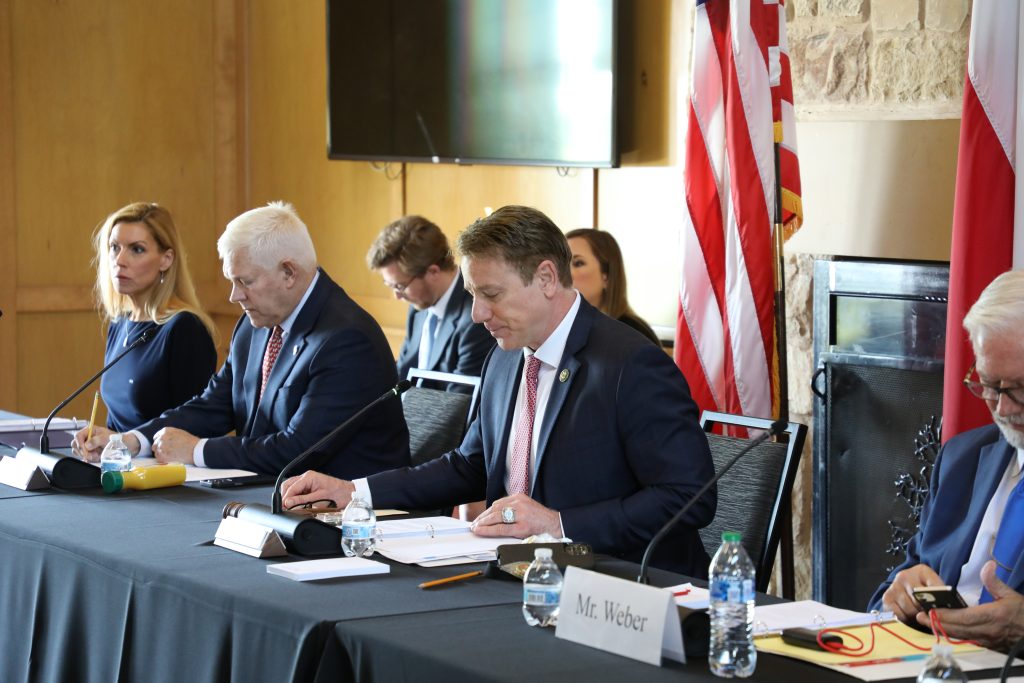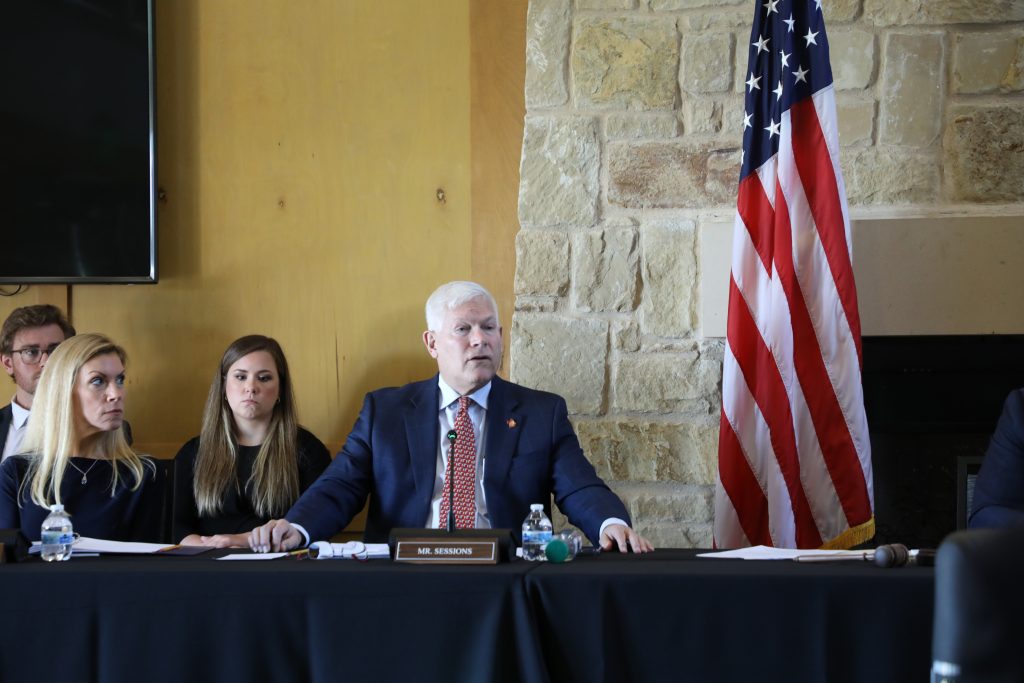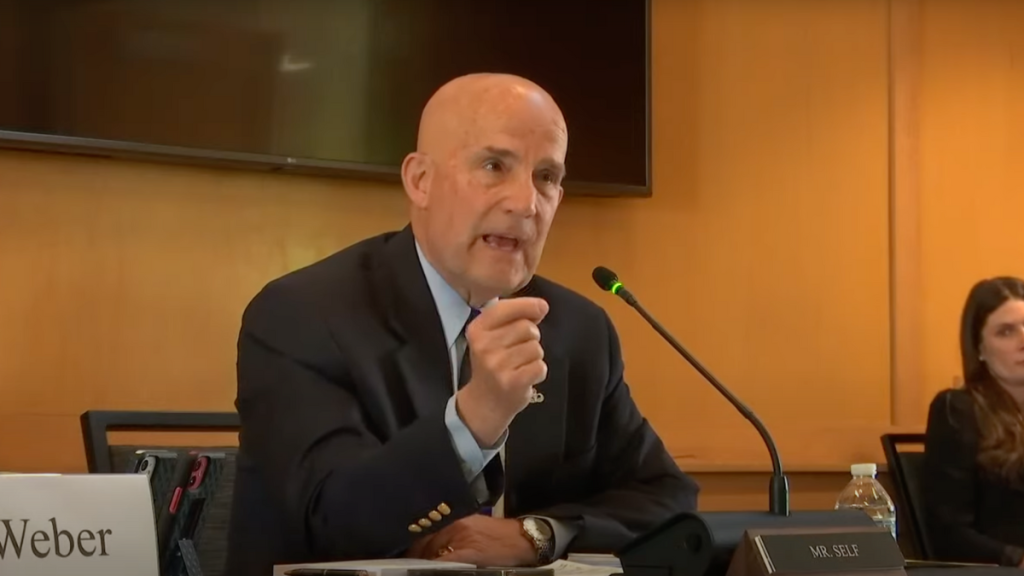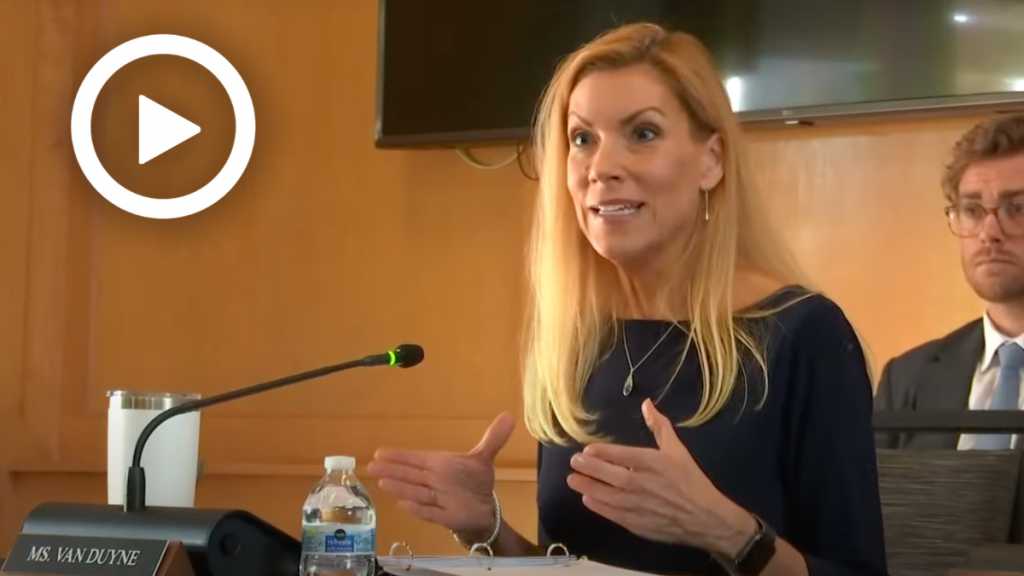Hearing Wrap Up: Biden Admin’s Whole-of-Government Attack on Energy Sacrifices American Jobs, Prices, Energy Security

WASHINGTON—The Subcommittee on Economic Growth, Energy Policy, and Regulatory Affairs held a field hearing this week in Plano, Texas titled, “Drilling Down: Oversight of the Challenges and Opportunities Facing U.S. Energy Production” to discuss the impact the Biden Administration’s policies and regulations have on America’s oil and natural gas industries for the short and long term. At the hearing, lawmakers discussed implications for the future of U.S. energy production and the U.S. energy workforce.
Key Takeaways:
-
There are significant benefits to U.S. leadership in energy. Growth in U.S. oil and natural gas production has both lowered global energy prices and reduced carbon emissions.
- “Unfortunately, instead of taking steps to support the production of more energy here at home, the Biden Administration has used every delay tactic and legal maneuver possible to deny Americans access to these resources,” Tim Tarpley, President, Energy Workforce & Technology Council, said during his opening statement.
- As global demand of affordable, reliable access to energy and hydrocarbon materials continues to increase, the U.S. is uniquely positioned to aid in providing these resources – with some of the highest and safest production standards anywhere in the world.
- The Biden Administration’s justification and timing of the Department of Energy’s (DOE) pause on new permitting for LNG exports to non-Free Trade Agreement countries is rooted in election-year politics and contrary to U.S. domestic interests.
-
American energy producers, specifically in Texas and other energy- producing states, are engines of economic growth and rely on a talented workforce to evolve and drive innovation.
- America’s leadership in energy has contributed to global economic growth and a significant reduction in poverty.
- Despite significant investments in career and technical education programs, there are still ongoing challenges to encouraging qualified talent in these fields. Despite being vilified by Democrats and the Biden Administration, the energy industry provides opportunities for the next generation to lead fulfilling careers.
Member Highlights:
Subcommittee Chairman Pat Fallon (R-Texas) discussed how U.S. energy regulations impact the United States’ ability to compete with countries like China.
Rep. Fallon: “Mr. Tarpley, has the United States in the last twenty years increased or decreased our carbon footprint?”
Mr. Tarpley: “Decreased.”
Rep. Fallon: “By what are we talking?”
Mr. Tarpley: “Twenty percent or more.”
Rep. Fallon: “In the same period of time, has China increased or decreased their carbon footprint?”
Mr. Tarpley: “Dramatically increased.”
Rep. Fallon: “When California imposes regulations, how does that help climate change when China is firing up a new coal plant once a week?”
Mr. Tarpley: “They’re building an enormous amount of coal-fired power generation to supplement production of solar panels and other equipment which they then sell to the world with lower prices because it’s state subsidized.”
Rep. Pete Sessions (R-Texas) pointed out how the Biden Administration’s numerous policies and regulations aimed at shifting away from oil and natural gas will impact the industry in the long-term.
Rep. Sessions: “I’d like for each of you to take just a minute and discuss two statements: That policies have consequences and that the new winners are not America.”
Mr. Tarpley: “The United States has a very important choice ahead of us. If you look at the worldwide demands for energy, they’re increasing dramatically, as we mentioned, AI, data centers, all of these factors are increasing the worldwide demand for energy. We have a choice. We can produce that energy here in the United States where we get the GDP benefit, American workers get that benefit, and we can produce that energy with some of the lowest emissions in the world. Or we can let somebody else do it.”
Mr. Gusek: “Policies certainly do have consequences. As I alluded to in my testimony, a lot of that comes in the form of cost and we pay for that here in America both as consumers but ultimately from a larger standpoint than that.”
Mr. desRosiers: “[…] There are places in this country where people don’t have a choice to use natural gas. Even in Pennsylvania, there are rural areas where people are still forced to use wood, coal, or propane, and they have to pay a higher price for those.”
Rep. Keith Self (R-Texas) noted how compliance with Biden Administration regulations creates pressures on the energy industry.
Rep. Self: “When do you think we’ll see the impact of the Biden rules and regulations?”
Mr. Tarpley: “These projects that occur offshore, their buildout is eight to ten years. […] The decisions we are making today are going to affect our energy situation eight years down the line.”
Rep. Self: “We are trying to wean Europe off of Russian energy, and yet we have this LNG pause. What is going to be the impact of this LNG pause on energy usage in Europe?”
Mr. Gusek: “Certainly, my thought would be that it means they ultimately go out and source that LNG from elsewhere. […] More likely than not that will be the Middle East and we will be at a loss for that.”
Rep. Beth Van Duyne (R-Texas) discussed the impact that the Biden Administration’s announcement of a pause on LNG exports on non-Free Trade Agreement countries.
Rep. Van Duyne: “Mr. Gusek, could you talk a little bit about how the EPA has burdened your business?”
Mr. Gusek: “[…] You can imagine, of course, there are a lot of people who drive older cars in this country by virtue of that’s what they can afford. If you had to have that car meet the most modern emissions requirements of a car that was built today, the cost to move that car from the emission standard it met in 1975 or 1980 to today would be incredibly burdensome to that person. The EPA is now expecting that same result when it comes to methane emissions.”
Rep. Van Duyne: “With so little of LNG going to countries we currently have an FTA with, how helpful would an increased trade agenda help export more energy.”
Mr. Tarpley: “[…] If there is going to be this additional burden on non-FTA countries than we should have a free trade agreement with countries that need to receive our LNG and that is one way to speed up the process.”
Rep. Van Duyne: “As we look toward 2025, we’re beginning to look at the extension of the 2017 tax cuts. What would the expiration of these tax cuts do to the energy industry?”
Mr. Tarpley: “I’ll just say there was an attempt by the administration to increase taxes on energy production. Ultimately, they didn’t have support within their own party to do that during reconciliation. We’re obviously concerned that they could try to do that again. Anything that raises the cost of producing U.S. energy is going to disincentivize production here in the U.S. and put us at a disadvantage to our competitors.”
Industry representatives and community leaders met with the Subcommittee in Houston to discuss the challenges facing U.S. energy producers, including workforce training, permitting reform, and the need for regulatory certainty.
READ MORE:
Related
U.S. economy adds jobs as federal layoffs and rising unemployment…
Julia Coronado: I think it's too early to say that the U.S. is heading to a recession. Certainly, we have seen the U.S. just continue t
The job listing site highlighting H-1B positions so Americans can…
A mysterious new job listings website recently went live, solely showing roles companies want to offer to their H-1B holders seeking Green Cards in an attempt t
Tepid February Jobs Report Boosts Odds of a June Fed…
Federal Reserve Board Chairman Jerome Powell speaks during a news conference. Photo by Chip ... [+] Somodevilla/Getty Images.Getty Images The February jobs repo
French university offers jobs to American scientists afraid of government…
As the current federal government in the U.S. has been freezing or cutting funding for several research grants, a French university has stepped in with an offer


















